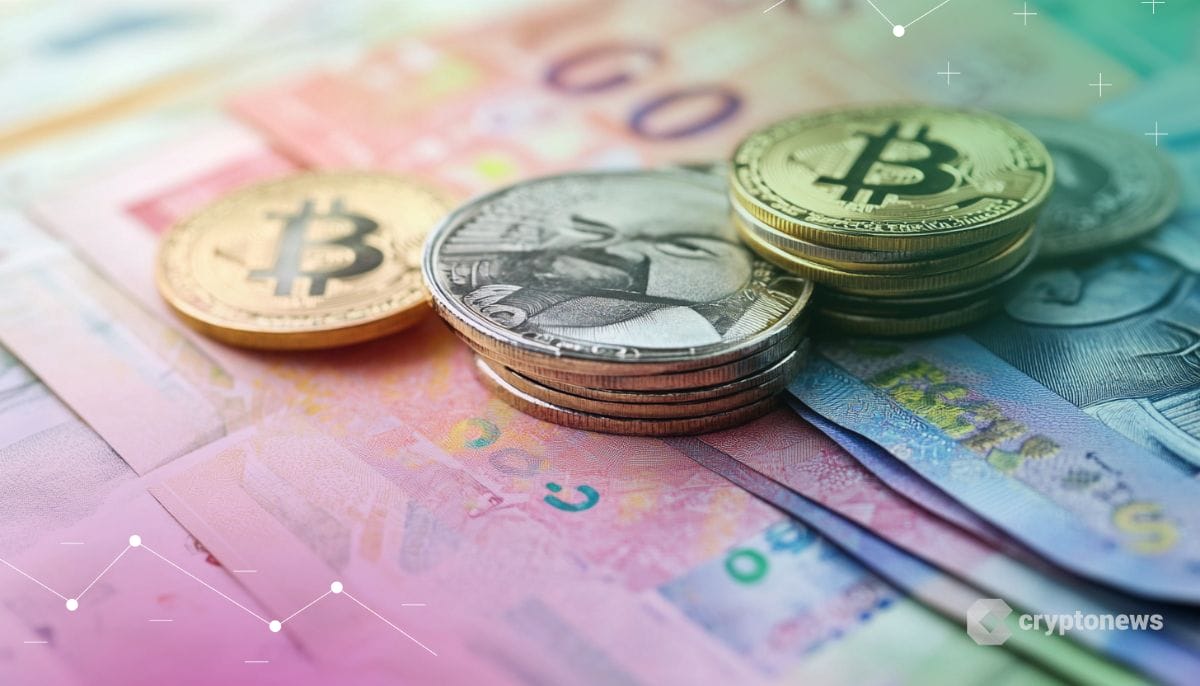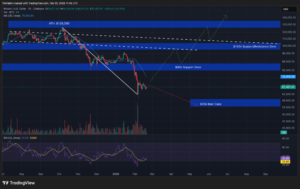Last updated:
 Why Trust Cryptonews
Why Trust Cryptonews
Ad Disclosure
We believe in full transparency with our readers. Some of our content includes affiliate links, and we may earn a commission through these partnerships. Read more

A group of Philippine banks is joining forces to launch a peso-backed stablecoin, PHPX, to enhance cross-border payments and promote financial inclusion.
The PHPX token is set to debut between May and July, leveraging decentralized ledger technology (DLT) via the Hedera network, according to a Ledger Insights report.
Singapore-based fintech startup Just Finance is spearheading the project, with key participants including UnionBank of the Philippines, Rizal Commercial Banking, Cantilan Bank, and Rural Bank of Guinobatan.
These banks will also govern the stablecoin’s operations.
UnionBank Developed PHX
UnionBank, through its fintech subsidiary UBX, previously developed PHX, a quasi-stablecoin for closed-loop payments.
However, UBX CEO John Januszczak told Ledger Insights that the token needs to “publicly exchangeable to support use cases outside our ecosystem.”
Remittances play a critical role in the Philippine economy, with overseas workers sending $40 billion in 2024, according to the World Bank.
PHPX aims to streamline these transfers by enabling real-time, cross-border payments.
“We want Filipinos earning money abroad to pay their kids’ school tuition in real-time from overseas,” said Januszczak.
The initiative also envisions a multicurrency stablecoin exchange to facilitate liquidity for PHPX swaps with other stablecoins, such as those pegged to the US dollar, Singapore dollar, and Japanese yen.
Future plans may expand PHPX’s use to domestic retail payments and point-of-sale systems.
To ensure regulatory compliance, PHPX transactions will align with the Basel Committee’s low-risk crypto-asset requirements and adhere to standards set by the EU’s Markets in Crypto-Assets Regulation or similar frameworks.
As demand grows, additional qualified investors may join to manage PHPX liquidity, reinforcing its capacity to meet market needs and enhance financial connectivity.
Philippines Central Bank Approves Trials for National Stablecoin
Last year, the Philippines central bank, Bangko Sentral ng Pilipinas (BSP), gave the green light for controlled trials of a national stablecoin that would be pegged 1:1 to the local peso.
The move came as the BSP, in collaboration with crypto wallet provider Coins.ph, explored the potential of a digital currency tied to the country’s fiat currency.
The pilot project for the Philippine peso-backed stablecoin, known as PHPC, has been approved under the BSP’s Regulatory Sandbox Framework.
Coins.ph, a well-known player in the Philippines’ crypto space, is responsible for maintaining cash reserves in pesos equivalent to the circulating supply of the PHPC stablecoin within the sandbox environment.
In April last year, the country’s SEC pursued removing Binance-linked applications from Apple and Google app stores in the Philippines.
“The SEC has identified [Binance] and concluded that the public’s continued access to these websites/apps poses a threat to the security of the funds of investing Filipinos,” SEC Chair Emilio Aquino said in letters to the companies.

















